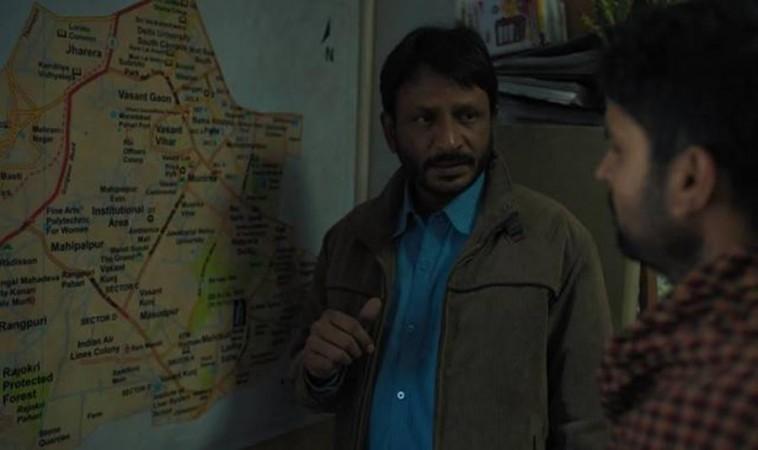For the longest time, the Hindi film industry has introduced us to cops who are one-directional. They are either morally upright men like Ravi Verma (Deewar), Bajirao Singham (Singham), or completely corrupt.
Rajesh Tailang, over the years in the web domain, has managed to sublimate from the screen and live with us like a family man. In Delhi Crime, he plays Bhupender Singh, a reel-life version of retired Delhi Police officer, Rajender Singh.

During an exclusive conversation with International Business Times, India the actor spoke about his journey and how the big win at the Emmy Awards was an unexpected surprise.
"I have been acting since I was 13. I did theatres. Then I went to NSD. After that I did Shanti on television then I did Hazar Churashi Ki Ma, in 1998. That was my first film," he said during the initial ice-breaking session.
How did Delhi Crime happen?
I knew Richie Mehta since 2006 or 2007 maybe. Right from his first film. He wrote English dialogues for Amal, starring Naseeruddin Shah. That was his first film, where I wrote the Hindi dialogues and I was the accent coach there.
Then I did a role in the film too. After that, he made Sidharth where I was the lead actor. Ritchie and I were always working, so naturally, he also wanted me to do Delhi Crime as well. We have been co-workers for the longest time in our career.
First and foremost reason for me joining Delhi Crime was Ritchie, because I'm closely associated with him. I knew that he was researching about Delhi Crime for as many as four to five years. The point of attraction was that the Nirbhaya incident had affected us all, we were all angry citizens. Also, I am a Delhi based citizen, and I was very affected.
So I wanted to be a part of it, how else can an artist express himself? And in terms of script, Ritchie made sure that it was managed with proper dedication. My character Bhupender Singh was based on Rajender Singh, he retired recently. He got me tutored for the role with his family life.
Delhi Crime shows the human behind the uniform you know. That abstract behaviour was there and it was really challenging for an actor. Usually, when you see cop dramas they are either complete heroes, like Simmba or they are completely corrupt. There's no middle ground. But do we ever think about their personal lives? Their day-to-day lives, daughter's wedding, the mix feeling you have while balancing a professional and personal life, these aspects are hardly explored in a few places. That was an extremely interesting venture for me as an actor.
Did you ever imagine Emmy?
No never. When we started it started as an independent project. It wasn't for Netflix or any channel. It wasn't even for a platform. I never thought that it will see the day of light. We all believed in Ritchie. We didn't know anything. We only trusted Ritchie. Then it was screened in the Sundance film festival when Netflix decided to buy it. Then we got the love of people, the good reviews followed. But I never imagined the Emmys would happen.
So that is something you also experienced in Mirzapur isn't it? Pandit is a law-abiding citizen but he kills the cop Maurya. So you think web-series explores such aspects?
Yes, but that is momentary. But even after that Pandit had said that he will suffer the consequences. He won't run away like Guddu. I don't know what happens later though, in the next season, I'm not aware of it yet. But if you leave Ramakant Pandit aside, you're right web domain allows you to explore more aspects. Because serials become thin, films have to be done within 2 hrs so only selective things can be shown. Web series go on for a long period of time. Webspace allows all artists to explore.
So you have been in the industry for a long time. How has the industry evolved now? I spoke to another actor, he mentioned that the non-creative team's interference bothers him. Do you feel the same?
See, in this industry people have to work. There will be a marketing team, creative team, and now corporate houses are here it has become more professional. There are good sides and bad sides to these changes.
Previously, people hardly got a good sum of money, but now everything is under contract, because of it you are much more secure. Previously I remember, I used to face a lot of financial problems. Actors weren't paid properly, may be paid in half. Previously it was a word-of-mouth thing so you couldn't do anything.
Now everything is under contract, so everyone gets a fair share of the money. Previously, distributors would want us to delete shots, and now, channels take the call. I see it as a business, this interference or involvement will always be there. So somebody who is making an investment would want to have a say in their project isn't it.










